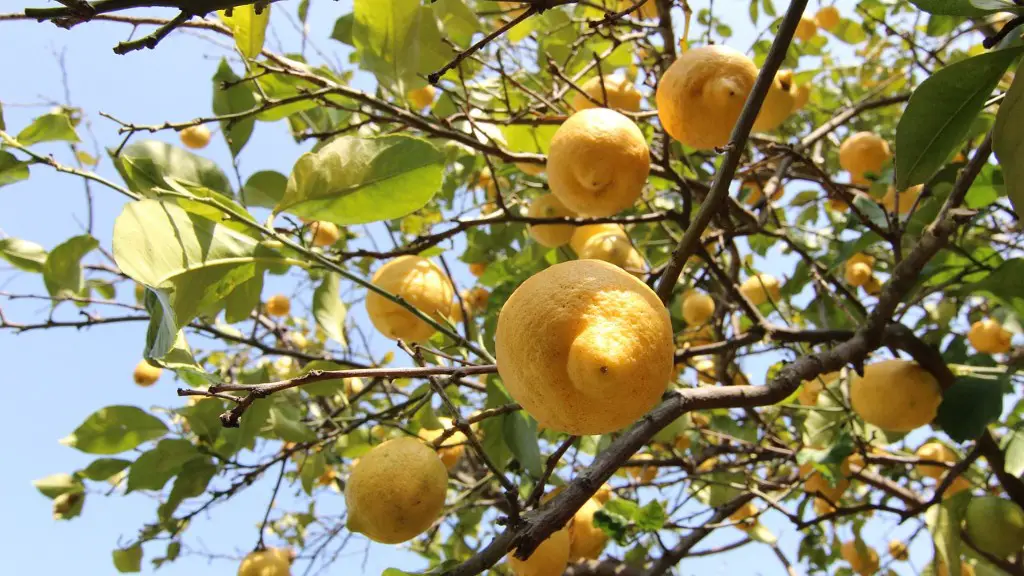Ants can be a common pest in outdoor plants, and they can be particularly bothersome when they infest a potted lemon tree. If you spot ants in your potted lemon tree, you’ll need to devise a plan to eliminate them. Here’s how to get rid of ants in potted lemon tree.
Firstly, identify where the ants are coming from. They’ll usually enter the plant through cracks or holes in the pot or soil. Trim away any branches that might be touching the ground, as ants use these as bridges to the tree. Fill in any holes in the pot, soil cracks or drainage holes with a sealant. Keep the pot in a shaded area, as ants prefer warmer climates.
Next, mix two tablespoons of dish soap with two liters of water and pour the solution into a spray bottle. Spray the plant with the solution and strongly concentrate on the areas of the pot and soil where the ants are concentrated. Note that this solution can burn the leaves, so spray it carefully.
You can also use sticky traps, such as those used to remove roaches and other bugs, to get rid of ants in potted lemon tree. Place a few of the traps around the plant and inspect the traps regularly. When the traps have ants stuck to them, you’ll know that they’re working.
Use citrus-based products around the tree. Ants don’t like the smell of citrus, so using citrus-based sprays or essential oils can be a great way to drive away ants from your potted lemon tree. Mix a few drops of an essential oil, such as lemon essential oil, with two liters of water and spray the plant with the solution.
Finally, create a dusting mix for the pot or soil. Take equal parts of borax and powdered sugar and mix them together. Sprinkle the mixture in areas of the pot or soil where the ants are concentrated. The borax will poison the ants, eliminating them from your potted lemon tree.
Prevention Strategies
Once you’ve gotten rid of ants in potted lemon tree, you should make sure you’re taking preventative measures to stop them from coming back. Inspect the tree and pot regularly for any signs of ants, and check for any potential entry points. Seal up these areas if you find any gaps or cracks. Additionally, make sure the pot is always in a shaded area.
Natural Remedies
There are also some natural remedies you can use to get rid of ants in potted lemon tree. You can sprinkle cinnamon around the pot or soil to drive away any ants that may be living in or near the plant. You can also use foods such as coffee grounds, onion or garlic to ward off pests. Place the food around the pot and you should notice a decrease in the ant population.
Diet
It’s worth noting that ants are attracted to food, so make sure the tree’s soil is well-drained and doesn’t hold moisture. Additionally, make sure you’re not giving the tree too much fertilizer as this can attract ants. Lastly, keep any food sources away from the tree, as ants are attracted to sugary liquids and other sources of food.
Chitin Synthesis Inhibitors
If you find that none of the above methods are working, you can try using chitin synthesis inhibitors. These are chemical insecticides than act by inhibiting the chitin production and growth of ants. They are available in a variety of forms, including liquid, granules, and dust. When used correctly, these insecticides can effectively get rid of ants in potted lemon tree.
Toxicity of Insecticides
While using insecticides can be a good way to prevent and get rid of ants, keep in mind that some of these products can be toxic to humans and pets. Make sure you read the instructions and warnings on any product before using it, and wear gloves and a face mask when spraying the tree. Additionally, make sure you keep the tree out of reach of children and pets.

